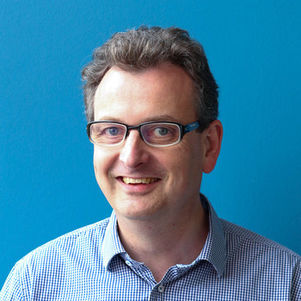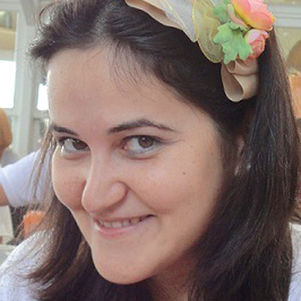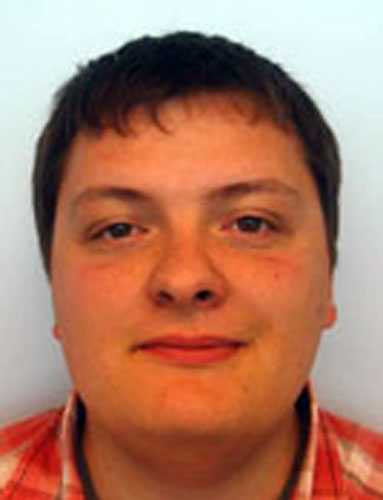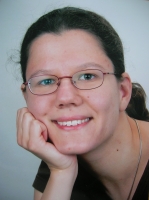Former Project Team
 |
Koen Hindriks, Assistant Professor | K.V.Hindriks@tudelft.nl | I am interested in combining qualitative forms of reasoning with quantitative approaches to negotiation to support humans in their negotiations. Furthermore, I am interested in finding optimal strategies for automated negotiation. | |
 |
Reyhan Aydogan, PostDoc | reyhan.aydogan@gmail.com | I am developing mechanisms, including protocols and strategies, for multi-party negotiations in non-linear domains. I am also working on qualitative preferences and qualitative forms of negotiation. | |
 |
Willem Paul Brinkman, Assistant Professor | W.P.Brinkman@tudelft.nl | Willem-Paul Brinkman research focuses on cognitive engineering on issues such emotion and usability. His is especially interested in mental health computing, such as virtual reality exposure therapy and e-coaching. | |
 |
Pascal Wiggers | During his work on the Pocket Negotiator project Pascal Wiggers was an assistant professor in the Interactive Intelligence Group at Delft University of Technology. His research focuses on artificial intelligence and machine learning techniques that enable intuitive collaborative human-machine communication and multimodal, affective interaction. | ||
 |
Joost Broekens, Assistant Professor | joost.broekens@gmail.com | Joost Broekens is an assistant professor in the Interactive Intelligence Group and received a MSc degree in Computer Science at the University of Delft, The Netherlands, in 2001. In 2007 he received his PhD in computer science at the University of Leiden, The Netherlands, in the area of computational modeling of emotion in relation to learning processes. He has published in the area of computational models of emotion (ranging from theoretical approaches to more applied ones), developed master-level courses and course material on the topic, and has given several invited lectures as well as less formal talks for the larger public related to Affective Computing. His most recent interests include reinforcement learning, affective computing, human-robot and human-computer interaction, and gaming research. | |
 |
Dmytro Tykhonov | While working on the Negotiation project, Dmytro was a PhD researcher at the Man-Machine Interaction Group, Delft University of Technology, The Netherlands. He received his PhD from the TU Delft in 2010. He studied artificial intelligence at Vrije Universiteit Amsterdam where he received his Master of Science diploma. He works on design and implementation of negotiation systems with a focus on opponent modelling and design of efficient negotiation strategies. This includes research questions such as learning an opponent model in single-shot negotiations, analysis of negotiation performance, computational complexity of preferences and negotiation strategies. His research interests include multi-agent simulations of social phenomena such as trust and deception in trade environments and the influence of national cultures on the development of trust-based trade relations. He is also interested in the art of practical software engineering. | ||
 |
Alina Huldtgren | Alina holds a degree in Computer Science (German degree: Diplom-Informatikerin (FH)) from the University of Applied Science, Gelsenkirchen. In May 2008 she obtained a Master of Science Degree in Interactive System Engineering at the Royal Institute of Computer Science (KTH), Stockholm. From 2008 - 2012 she was a PhD Researcher within the MMI group at the TU Delft on the Pocket Negotiator project. Her work within the negotiation project focused on the interaction between the human and the system. In specific she is investigated ways to elicit preferences of the users, build a user model and give intelligent advice by the system to the user. She uses a mixed approach combining qualitative with quantitative research methods involving users as well as experts in the design process. Alina received her PhD from the TU Delft on this work in 2012. | ||
 |
Wietske Visser | Within the project, Wietske focused on the development of a qualitative formal negotiation language suitable for the specification of possibly incomplete domain knowledge, preferences and other constraints, which makes a distinction between negotiation issues and underlying interests. She will also develop a negotiation engine that can use the language to propose bids and process received bids and other communicated information. Her research interests are knowledge representation and reasoning. Wietske received her PhD in 2012.
Wietske holds a BA degree in Linguistics from Leiden University and a MSc degree in Cognitive Artificial Intelligence from Utrecht University. She started her PhD research in June 2008. |
||
 |
Iris van de Kieft | Iris holds a BSc degree in Artificial Intelligence and a MSc degree in Cognitive Neuropsychology from the VU Universtity Amsterdam. She also completed the first year of the Master of Logic at the University of Amsterdam.
|
||
 |
Tim Baarslag, PhD Researcher |
T.Baarslag AT tudelft.nl | Tim Baarslag is a Scientific Staff Member at CWI (Centrum Wiskunde & Informatica, the national research institute for Mathematics and Computer Science in the Netherlands) and an Assistant Professor at Utrecht University. He is a Visiting Associate Professor at Nagoya University of Technology and Visiting Fellow at the University of Southampton. | |
 |
Ulas Ulgen | The Master project of Ulas Ulgen was to create a tool for the elicitation of underlying interests (also called concerns) of negotiators. The tool also allows the user to link the interests to the issues of negotiation. His tool was incorporated into the Pocket Negotiator demonstrator in the summer of 2013. Ulas received his MSc diploma in computer science of the TU Delft in autumn of 2013. | ||
 |
Mark Hendrikx | Mark Hendrikx is a Computer Science alumnus interested in the topic of automated negotiation. In 2011 – 2012 he wrote his masterthesis about opponent modeling, a topic in automated negotiation concerned with the application of learning techniques to interpret the opponent’s behaviour. Mark Hendrikx supervised several courses as a student-assistant and was hired after his masterthesis to continue his work on opponent modeling. Currently he is employed as Java developer, but he is still actively researching the topic of preference modeling techniques. | ||
 |
Alexander Dirkzwager | Alexander Dirkzwager studied Computer Science at Delft University of Technology receiving his BSc in 2011 and his MSc degree in 2013. The topic of his master thesis was within the field of automated negotiation, investigating the key components within a negotiation strategy and their relationship to one another. | ||
 |
Bram Renting | Automated algorithm configuration (hyperparameter optimization), Negotiation Agents, and Reinforcement Learning. First paper accepted at AAMAS 2020. |
